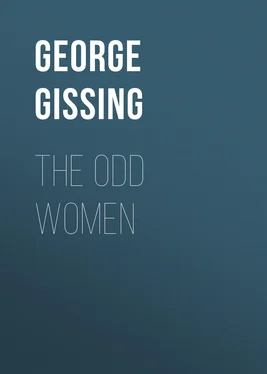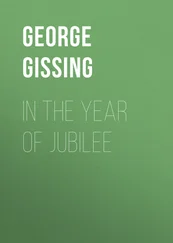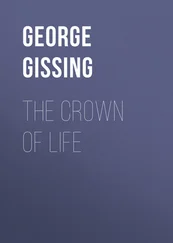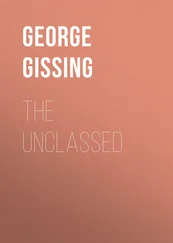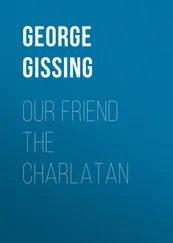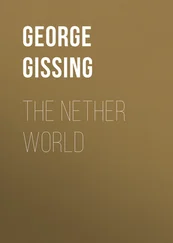George Gissing - The Odd Women
Здесь есть возможность читать онлайн «George Gissing - The Odd Women» — ознакомительный отрывок электронной книги совершенно бесплатно, а после прочтения отрывка купить полную версию. В некоторых случаях можно слушать аудио, скачать через торрент в формате fb2 и присутствует краткое содержание. Жанр: Социально-психологическая фантастика, foreign_antique, foreign_prose, foreign_sf, на английском языке. Описание произведения, (предисловие) а так же отзывы посетителей доступны на портале библиотеки ЛибКат.
- Название:The Odd Women
- Автор:
- Жанр:
- Год:неизвестен
- ISBN:нет данных
- Рейтинг книги:4 / 5. Голосов: 1
-
Избранное:Добавить в избранное
- Отзывы:
-
Ваша оценка:
- 80
- 1
- 2
- 3
- 4
- 5
The Odd Women: краткое содержание, описание и аннотация
Предлагаем к чтению аннотацию, описание, краткое содержание или предисловие (зависит от того, что написал сам автор книги «The Odd Women»). Если вы не нашли необходимую информацию о книге — напишите в комментариях, мы постараемся отыскать её.
The Odd Women — читать онлайн ознакомительный отрывок
Ниже представлен текст книги, разбитый по страницам. Система сохранения места последней прочитанной страницы, позволяет с удобством читать онлайн бесплатно книгу «The Odd Women», без необходимости каждый раз заново искать на чём Вы остановились. Поставьте закладку, и сможете в любой момент перейти на страницу, на которой закончили чтение.
Интервал:
Закладка:
A lady came out. Then again Virginia approached the door. Two men only were within, talking together. With a hurried, nervous movement, she pushed the door open and went up to a part of the counter as far as possible from the two customers. Bending forward, she said to the barmaid in a voice just above a whisper,—
'Kindly give me a little brandy.'
Beads of perspiration were on her face, which had turned to a ghastly pallor. The barmaid, concluding that she was ill, served her promptly and with a sympathetic look.
Virginia added to the spirit twice its quantity of water, standing, as she did so, half turned from the bar. Then she sipped hurriedly two or three times, and at length took a draught. Colour flowed to her cheeks; her eyes lost their frightened glare. Another draught finished the stimulant. She hastily wiped her lips, and walked away with firm step.
In the meantime a threatening cloud had passed from the sun; warm rays fell upon the street and its clamorous life. Virginia felt tired in body, but a delightful animation, rarest of boons, gave her new strength. She walked into Trafalgar Square and viewed it like a person who stands there for the first time, smiling, interested. A quarter of an hour passed whilst she merely enjoyed the air, the sunshine, and the scene about her. Such a quarter of an hour—so calm, contented, unconsciously hopeful—as she had not known since Alice's coming to London.
She reached the house by half-past one, bringing in a paper bag something which was to serve for dinner. Alice had a wretched appearance; her head ached worse than ever.
'Virgie,' she moaned, 'we never took account of illness, you know.'
'Oh, we must keep that off,' replied the other, sitting down with a look of exhaustion. She smiled, but no longer as in the sunlight of Trafalgar Square.
'Yes, I must struggle against it. We will have dinner as soon as possible. I feel faint.'
If both of them had avowed their faintness as often as they felt it, the complaint would have been perpetual. But they generally made a point of deceiving each other, and tried to delude themselves; professing that no diet could be better for their particular needs than this which poverty imposed.
'Ah! it's a good sign to be hungry,' exclaimed Virginia. 'You'll be better this afternoon, dear.'
Alice turned over 'The Christian Year,' and endeavoured to console herself out of it, whilst her sister prepared the meal.
CHAPTER III
AN INDEPENDENT WOMAN
Virginia's reply to Miss Nunn's letter brought another note next morning—Saturday. It was to request a call from the sisters that same afternoon.
Alice, unfortunately, would not be able to leave home. Her disorder had become a feverish cold—caught, doubtless, between open window and door whilst the bedroom was being aired for breakfast. She lay in bed, and her sister administered remedies of the chemist's advising.
But she insisted on Virginia leaving her in the afternoon. Miss Nunn might have something of importance to tell or to suggest. Mrs. Conisbee, sympathetic in her crude way, would see that the invalid wanted for nothing.
So, after a dinner of mashed potatoes and milk ('The Irish peasantry live almost entirely on that,' croaked Alice, 'and they are physically a fine race'), the younger sister started on her walk to Chelsea. Her destination was a plain, low roomy old house in Queen's Road, over against the hospital gardens. On asking for Miss Nunn, she was led to a back room on the ground floor, and there waited for a few moments. Several large bookcases, a well-equipped writing-table, and kindred objects, indicated that the occupant of the house was studious; the numerous bunches of cut flowers, which agreeably scented the air, seemed to prove the student was a woman.
Miss Nunn entered. Younger only by a year or two than Virginia, she was yet far from presenting any sorrowful image of a person on the way to old-maidenhood. She had a clear though pale skin, a vigorous frame, a brisk movement—all the signs of fairly good health. Whether or not she could be called a comely woman might have furnished matter for male discussion; the prevailing voice of her own sex would have denied her charm of feature. At first view the countenance seemed masculine, its expression somewhat aggressive—eyes shrewdly observant and lips consciously impregnable. But the connoisseur delayed his verdict. It was a face that invited, that compelled, study. Self-confidence, intellectual keenness, a bright humour, frank courage, were traits legible enough; and when the lips parted to show their warmth, their fullness, when the eyelids drooped a little in meditation, one became aware of a suggestiveness directed not solely to the intellect, of something like an unfamiliar sexual type, remote indeed from the voluptuous, but hinting a possibility of subtle feminine forces that might be released by circumstance. She wore a black serge gown, with white collar and cuffs; her thick hair rippled low upon each side of the forehead, and behind was gathered into loose vertical coils; in shadow the hue seemed black, but when illumined it was seen to be the darkest, warmest brown.
Offering a strong, shapely hand, she looked at her visitor with a smile which betrayed some mixture of pain in the hearty welcome.
'And how long have you been in London?'
It was the tone of a busy, practical person. Her voice had not much softness of timbre, and perhaps on that account she kept it carefully subdued.
'So long as that? How I wish I had known you were so near! I have been in London myself about two years. And your sisters?'
Virginia explained Alice's absence, adding,—
'As for poor Monica, she has only Sunday free—except one evening a month. She is at business till half-past nine, and on Saturday till half-past eleven or twelve.'
'Oh, dear, dear, dear!' exclaimed the other rapidly, making a motion with her hand as if to brush away something disagreeable. 'That will never do. You must put a stop to that.'
'I am sure we ought to.'
Virginia's thin, timid voice and weak manner were thrown into painful contrast by Miss Nunn's personality.
'Yes, yes; we will talk about it presently. Poor little Monica! But do tell me about yourself and Miss Madden. It is so long since I heard about you.'
'Indeed I ought to have written. I remember that at the end of our correspondence I remained in your debt. But it was a troublesome and depressing time with me. I had nothing but groans and moans to send.'
'You didn't stay long, I trust, with that trying Mrs. Carr?'
'Three years!' sighed Virginia.
'Oh, your patience!'
'I wished to leave again and again. But at the end she always begged me not to desert her—that was how she put it. After all, I never had the heart to go.'
'Very kind of you, but—those questions are so difficult to decide. Self-sacrifice may be quite wrong, I'm afraid.'
'Do you think so?' asked Virginia anxiously.
'Yes, I am sure it is often wrong—all the more so because people proclaim it a virtue without any reference to circumstances. Then how did you get away at last?'
'The poor woman died. Then I had a place scarcely less disagreeable. Now I have none at all; but I really must find one very soon.'
She laughed at this allusion to her poverty, and made nervous motions.
'Let me tell you what my own course has been,' said Miss Nunn, after a short reflection. 'When my mother died, I determined to have done with teaching—you know that. I disliked it too much, and partly, of course, because I was incapable. Half my teaching was a sham—a pretence of knowing what I neither knew nor cared to know. I had gone into it like most girls, as a dreary matter of course.'
'Like poor Alice, I'm afraid.'
'Oh, it's a distressing subject. When my mother left me that little sum of money I took a bold step. I went to Bristol to learn everything I could that would help me out of school life. Shorthand, book-keeping, commercial correspondence—I had lessons in them all, and worked desperately for a year. It did me good; at the end of the year I was vastly improved in health, and felt myself worth something in the world. I got a place as cashier in a large shop. That soon tired me, and by dint of advertising I found a place in an office at Bath. It was a move towards London, and I couldn't rest till I had come the whole way. My first engagement here was as shorthand writer to the secretary of a company. But he soon wanted some one who could use a typewriter. That was a suggestion. I went to learn typewriting, and the lady who taught me asked me in the end to stay with her as an assistant. This is her house, and here I live with her.'
Читать дальшеИнтервал:
Закладка:
Похожие книги на «The Odd Women»
Представляем Вашему вниманию похожие книги на «The Odd Women» списком для выбора. Мы отобрали схожую по названию и смыслу литературу в надежде предоставить читателям больше вариантов отыскать новые, интересные, ещё непрочитанные произведения.
Обсуждение, отзывы о книге «The Odd Women» и просто собственные мнения читателей. Оставьте ваши комментарии, напишите, что Вы думаете о произведении, его смысле или главных героях. Укажите что конкретно понравилось, а что нет, и почему Вы так считаете.
